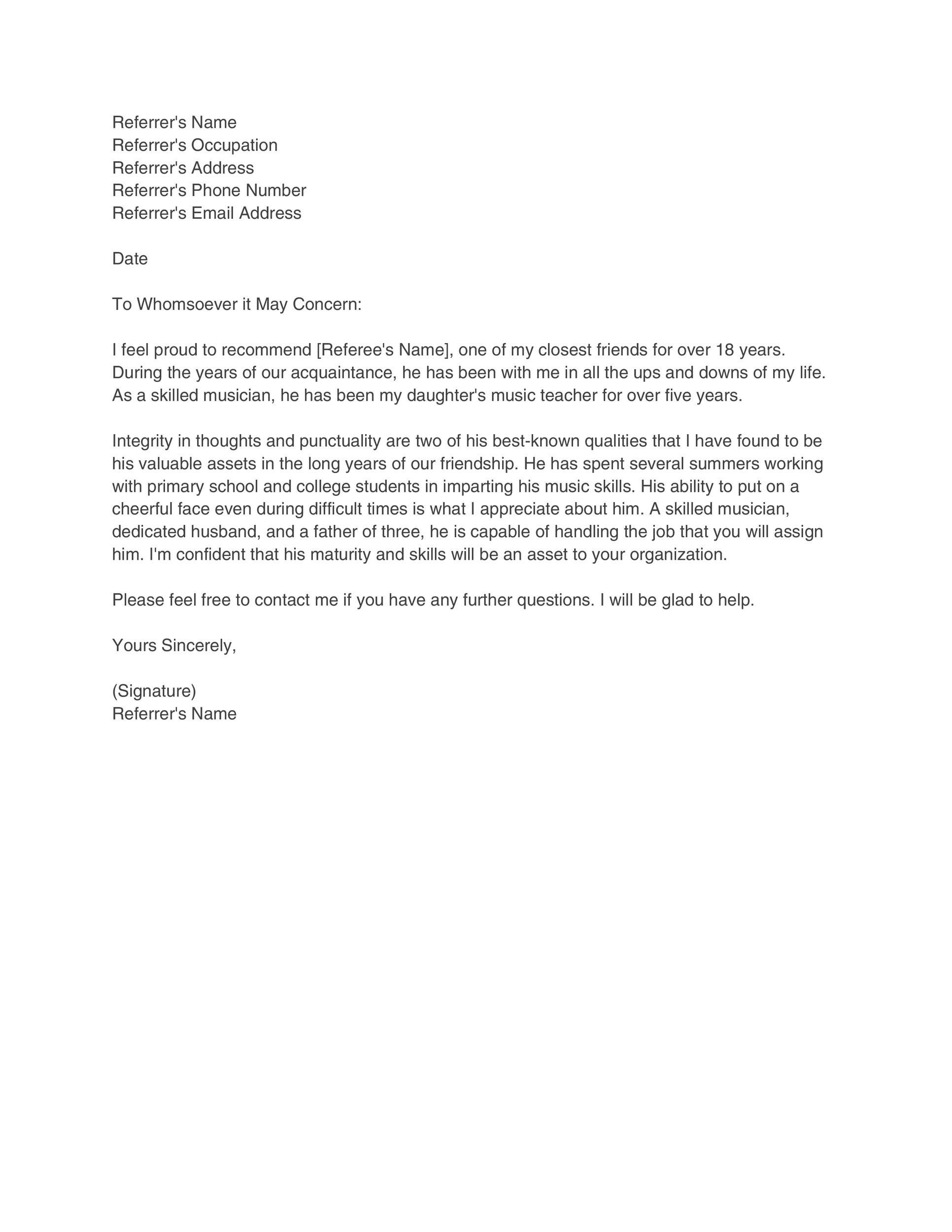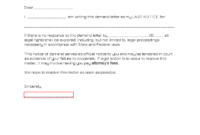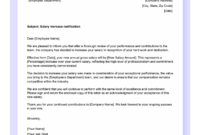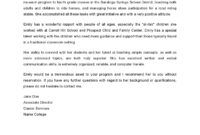There comes a time when a good friend might ask for a favor that carries a bit of weight: a personal reference letter. Whether it is for a new job opportunity, a rental application, a scholarship, or even a volunteer position, your words can make a significant difference in their journey. It is a true testament to your friendship and trust that they have turned to you, and it is a wonderful opportunity to genuinely advocate for someone you care about deeply.
Crafting a compelling letter can feel a little daunting, especially if you are unsure about what to include or how to best present your friend in the most positive and professional light. You want to ensure your letter effectively highlights their best qualities and suitability for whatever they are applying for. This article aims to demystify the process, offering insights and a practical personal reference letter template for a friend, helping you write a glowing endorsement with confidence.
The Essential Ingredients of a Standout Reference
A truly effective personal reference letter goes beyond just saying “my friend is great.” It provides concrete examples and paints a vivid picture of the individual’s character, work ethic, and suitability for the specific opportunity. Think of it as telling a story about your friend, showcasing their strengths through specific anecdotes and observations. The goal is to make the recipient feel like they have a good grasp of who your friend is, even without having met them.
The structure of your letter plays a crucial role in its clarity and impact. A well-organized letter is easy to read and ensures that all the vital information is conveyed effectively. It should flow logically from your introduction to your strong recommendation, leaving no doubt in the reader’s mind about your friend’s positive attributes. Remember, brevity combined with impactful details is key.
Key Elements to Include
- Your complete contact information (name, address, phone, email)
- The date you are writing the letter
- The recipient’s name and address (if known, otherwise a general salutation)
- A clear, professional salutation
- An introduction explaining how you know the person and for how long
- Body paragraphs detailing specific examples of their character, skills, and relevant qualities
- A strong closing paragraph unequivocally recommending your friend
- Your professional closing (e.g., Sincerely) and your signature
Each of these components contributes to a comprehensive and persuasive letter. For instance, the introduction sets the stage, establishing your credibility as someone who truly knows the applicant. The body paragraphs are where you bring your friend to life through specific examples, demonstrating qualities like reliability, integrity, and diligence, rather than just stating them.

Your Guide to Writing an Effective Personal Reference
When you sit down to write, start by taking a moment to reflect on your friend’s best qualities and any specific instances where they demonstrated those traits. What makes them stand out? What unique strengths would they bring to a new job, apartment, or academic program? If they have shared details about the opportunity they are applying for, try to tailor your examples to align with the requirements or values of that specific role or organization.
Think about the context of the letter. If it is for a job, focus on qualities like their responsibility, ability to work with others, or problem-solving skills, perhaps recalling times they handled a challenging situation gracefully or consistently met commitments. For a rental application, you might highlight their reliability, respect for property, and neighborly conduct. Specificity makes your recommendation far more powerful and believable than generic praise.
Here is a general structure to follow that you can adapt for your specific needs:
- Start with a clear introduction stating your relationship to the applicant and the purpose of the letter.
- Dedicate a few paragraphs to providing specific, detailed examples of your friend’s character and relevant skills.
- Maintain a consistently positive and enthusiastic tone throughout the entire letter.
- Conclude with a strong, unambiguous endorsement of your friend and an offer to provide further information if needed.
- Finally, proofread your letter meticulously for any grammatical errors or typos before sending it off.
Remember, your letter is a reflection not only of your friend but also of your own attention to detail and professionalism. A well-written, thoughtful reference can significantly boost your friend’s chances and shows your genuine support. Take the time to make it shine.
Providing a personal reference letter is a significant act of support, offering tangible evidence of your friend’s character and capabilities to potential employers, landlords, or institutions. Your unique perspective and specific anecdotes are invaluable, as they help humanize the application process and provide a richer understanding of the individual beyond their resume or application form. It is a powerful way to leverage your friendship to open doors for them.
By following these guidelines and using a well-structured approach, you can craft a compelling letter that truly showcases your friend’s strengths and makes a lasting positive impression. Your thoughtful words will not only help your friend achieve their goals but also reinforce the strength and value of your bond. It is a small investment of your time that can yield big rewards for someone you care about.



